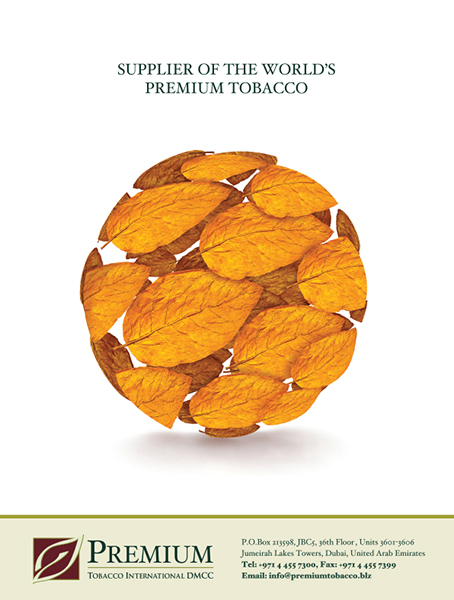
The FDA’s proposed ban on menthol cigarettes and cigars remains highly controversial.
By Stefanie Rossel
Almost exactly a year after the European Union imposed a ban on the manufacture and sale of menthol cigarettes, the U.S. Food and Drug Administration said it would ban menthol as a characterizing flavor in cigarettes and cigars at the federal level. With the move, the agency hopes to significantly reduce youth initiation to smoking, increase the chances of smoking cessation among current smokers and address health disparities experienced by communities of color, low-income populations and LGBTQ+ individuals, all of whom are more likely to use these tobacco products, according to acting FDA Commissioner Janet Woodcock.
The proposed ban, announced on April 29, has been under discussion for more than a decade. While the 2009 Family Smoking Prevention and Tobacco Control Act (TCA), which gave the FDA regulatory authority over tobacco products, banned all characterizing flavors in cigarettes, it allowed the continued use of menthol cigarettes but instructed the agency to consider what to do about the additive. The FDA’s recent decision was forced by a federal lawsuit brought by public health groups in 2020 after the agency failed to respond to their 2013 petition, which called on the FDA to ban menthol products.
Menthol can be extracted from mint plants or made synthetically. In tobacco, it is used to mask the harshness and irritation caused by cigarette smoke. The minty flavor creates a cooling, slightly anesthetic sensation, which, according to a 2013 FDA report, makes cigarettes more appealing to new smokers, thus getting them more easily addicted. The substance is also believed to increase the degree of addiction; menthol smokers are reportedly less likely than nonmenthol smokers to successfully quit smoking despite having a higher urge to end their tobacco dependence. Around the globe, mentholated smokes account for about 10 percent of cigarette consumption, according to the World Health Organization.
In the U.S., menthol cigarettes represented 36 percent of all cigarette sales in 2018, according to the Centers for Disease Control and Prevention. Although U.S. smoking prevalence has dropped below 40 million, the share of mentholated cigarettes has risen significantly after the TCA prohibited all other characterizing flavors.
What makes the FDA’s proposed ban controversial is the fact that menthol cigarettes are also considered a racial justice issue in the U.S. According to the 2019 National Survey on Drug Use and Health, 85 percent of African American smokers smoke menthol cigarettes compared to 30 percent of white smokers and compared to less than 10 percent of African American smokers in the 1950s—a situation that critics attribute to racially targeted marketing strategies by the tobacco industry. African Americans typically smoke fewer cigarettes and start smoking at an older age than white smokers, but they die from tobacco-related illnesses at much higher rates, CDC data indicates.
Menthol cigarettes also appeal to Hispanic (48 percent) and Asian (41 percent) smokers, according to the survey, whereas about half of smokers aged 12–17 smoke menthols compared with about 40 percent for smokers aged 18 and older. With a market share of 49 percent, menthol cigarettes also featured prominently in in the LGBTQ+ community.

Great Expectations
The FDA expects its proposed ban to have a significant impact. A Canadian study quoted by the agency suggests that the measure would prompt an additional 923,000 U.S. smokers to quit, including 230,000 African Americans, in the first 13 months to 17 months after taking effect. According to an earlier study, such a measure would avert 633,000 premature deaths, including 237,000 African American deaths.
While many public health and civil rights groups welcomed the FDA’s decision, lauding it as a win for both public health and racial justice, critics cast doubt on the health effects and warned that it could create more problems for minorities.
“In this country, we have found out that prohibition doesn’t work,” says Jeff Stier, senior fellow at Taxpayers Protection Alliance. “The ban is supposed to protect African American smokers, but they are likely to switch to a different, nonmenthol combustible cigarette brand or buy their mentholated cigarettes on the black market. We already have a pretty active illicit market; a ban would make it even worse.”
In the view of some civil rights organizations, a ban on menthol would create new, unwelcome opportunities for negative interactions between law enforcement and Black Americans.
The FDA plans to implement its ban by 2022, but experts expect a flood of lawsuits from the tobacco industry. Apart from a long fight regulators may face in court, along with resistance in Congress, most notably from tobacco-state lawmakers, the process of shaping respective legislation is likely to take time as it will comprise two detailed proposals that are open to public comments and will then be reviewed by the White House. When the FDA last proposed to ban menthol cigarettes in 2013, it received 174,000 public comments. The agency is obliged by law to read every single one and consider them carefully.
Questionable Effect
While several countries, including Brazil and Turkey, have banned menthol cigarettes over the past decade, data on the impact of the measure remains scarce. Studies from Canada show that smokers of menthol cigarettes were considerably more likely to quit their habit altogether after that country banned menthol cigarettes nationwide in 2017. A more recent study by the National Bureau of Economic Research in Cambridge, Massachusetts, USA, however, concludes that there was “almost no direct evidence on [the] effects” of a menthol cigarette ban “using real-world policy variation.” The study also found that many youths switched to nonmenthol cigarettes and that many adults started buying their menthol cigarettes from Native Canadian reserves, which are exempted from the ban. With a pre-ban market share of 5 percent, the Canadian menthol cigarette market is also more like that of the EU, where menthol cigarettes account for 7 percent of all cigarette sales, than that of the U.S.
The EU prohibited the manufacture and sale of menthol cigarettes in May 2020. The ban extends to the sale of rolling tobacco with mentholated filters or papers. Exempted from the ban are menthol-flavored e-liquids for vape products, separately available mentholated smoking accessories, menthol-flavored oral nicotine pouches and cigarillos. Outside of Germany, mentholated consumables for heated-tobacco products (HTPs) also remain legal.
Cigarette manufacturers responded with innovative solutions to the ban. Apart from broadening their portfolios of menthol-flavored and mint-flavored reduced-risk products (RRPs), they introduced mentholated flavor cards, which smokers could buy separately to mentholate conventional cigarettes. Tobacco companies also started offering cigarillos with mentholated filter capsules. Cigarillos are exempt from the EU ban as they are wrapped in tobacco leaf.

Choosing Alternatives
To determine whether the EU ban met its objective of discouraging people from smoking or encouraging them to quit, Euromonitor International, on behalf of the Foundation for a Smoke-Free World, surveyed more than 6,000 adult menthol cigarette smokers in eight EU countries before and after the menthol cigarette ban. While the pre-ban surveys queried awareness and intention to quit or switch, the post-ban surveys queried behavior.
Main takeaways of the surveys included a lower rate of quitting smoking completely (8 percent) than indicated in the pre-ban survey (12 percent) and higher use of products that allow consumers to manually add a flavor to regular tobacco products. Thirteen percent of respondents said they had started buying products such as menthol flavor cards or menthol filter tips after the ban as opposed to 8 percent who had the pre-ban intention to do so.
Thirty percent of respondents said they had reduced consumption of menthol cigarettes after the ban. Twenty-eight percent indicated they had stopped smoking menthol cigarettes but continued to consume regular cigarettes (pre-ban intention: 35 percent). Twelve percent said they had stopped consuming menthol cigarettes after the ban but increased their consumption of nonmenthol cigarettes (pre-ban intention: 13 percent). Eighteen percent stated post-ban they had switched to other menthol products not affected by the ban, such as menthol cigars, cigarillos, e-cigarettes and HTPs (pre-ban intention: 19 percent).
Thirteen percent had started buying menthol cigarettes from other sources (pre-ban intention: 12 percent), more precisely from friends or family who had travelled to countries where menthol cigarettes were still legal or from online retailers shipping from other countries.
Interestingly, when unprompted, only 43 percent of respondents considered menthol cigarettes to be illegal in the post-ban surveys. While 10 percent were unsure of the legal status of menthol products, 27 percent still believed them to be legal or to be banned in the future (20 percent).
Harm Reduction Instead of Prohibition
Interestingly, the EU menthol ban appears to have nudged smokers a bit toward less hazardous forms of nicotine consumption. Of the 18 percent of respondents who said they had switched to other menthol products not affected by the ban, the majority chose RRPs. On average, 57 percent of respondents said they had switched to e-cigarettes, with the highest percentages being observed in Poland (67 percent) and the U.K. (57 percent), two markets with high vaping prevalence. Overall, 12 percent of switchers indicated they had switched to nicotine-replacement therapy products.
It’s a development Stier would like to see in the United States, which has yet to fully embrace the concept of tobacco harm reduction by promoting products such as e-cigarettes and snus as safer alternatives to combustible cigarettes. “Instead of going back to prohibition that will bring about unintended consequences, we should encourage smokers, as they do in the U.K., to quit smoking and switch to lower risk vape products. The FDA is sitting on applications to authorize these e-cigarettes now. Instead of banning products the African American community smokes, it should undo the misperceptions surrounding RRPs, offer better alternatives and be truthful about the risks,” he says.












